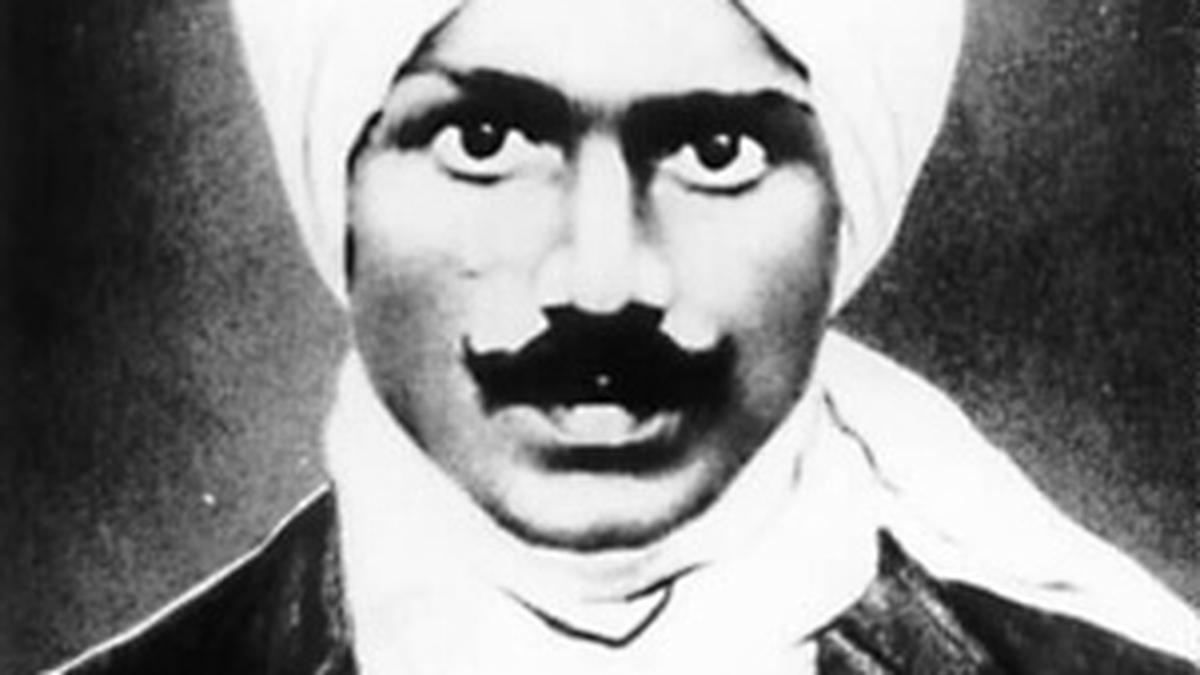Writing verse alone does not make a poet. True poets live and breathe poetry, their lives touched and transformed by it, says Subramania Bharati.
It is with reverence and profound respect that we recall the life and contribution of the iconic poet, journalist, freedom fighter, activist and social reformer, Subramania Bharati, whose life is like the message of the ancient sages of our great land. ‘Bharati’ was the title given to this great luminary, as was the title of ‘Mahakavi’. Both signify his extraordinary contribution to the world of letters through his poetry and his speeches. He was truly blessed by Ma Saraswati, the Goddess of learning.
The very name, Bharati, evokes a spirit of nationalism and pride in being a Bharatiya. If one looks closely at the name, Bharat comes before ‘I’ reflecting humility and placing the nation before self.
In his short life, Subramania Bharati left an indelible imprint on a wide array of subjects, revealing his multi-dimensional personality. He is a symbol of multilingualism that characterises India. Bharati knew 32 languages, including three foreign languages, and while he composed brilliant poems and essays in English, he took immense pride in being a Tamil poet and a journalist. He considered Tamil and all other Indian languages to be in no way inferior to English.
Philosophical and poetical literature
In an essay in New India, he writes, “The English educated minority in this country can be pardoned for being frightfully ignorant of the higher phases of our national literatures. But they will do well to drop that annoying attitude of patronage and condescension when writing and talking about our languages. The Tamil language, for instance, has a living philosophical and poetical literature that is far grander, to my mind than that of the vernacular of England.”
He wanted Indians to be proud of their rich heritage. Language and literature were an integral part of this heritage. While he took immense pride in being a Tamil scholar and poet, Bharati showed tremendous respect towards other languages. For instance, he described Telugu as ‘Sundara Telungu’. He urges us to take pride in being Bharatiyas and belonging to a land blessed with ancient wisdom, a land which, in his famous words is: “The glorious symbol (tilak) of the world, the Land of Bharat.”
Subramania Bharati was a visionary of ‘freedom’ in the broadest sense. Not only did he join the freedom struggle and relentlessly fight against the foreign rulers, but also wanted India to be free from hunger, gender discrimination, untouchability, unclean environment, narrow linguistic and religious dogmatism. It is this visionary approach which makes him so relevant to our times.
Bharati wanted India to break free from the caste system. He considered all living beings as equal and to illustrate this, he performed the upanayanam for a young Dalit man and made him a Brahmin. In one of his poems, he says, “There is no caste system. It is a sin to divide people on caste basis, which means a well-educated person knows to treat them alike and not by their caste.”
This is exactly what the ancient sages had told us when they said: “Pandithah sama darshinaha”.
Against colonial rule
Bharati was against colonial rule and subjugation of Indians by the British, but not against all foreigners. If they loved and respected Bharat and its rich culture, he in turn, deeply respected them. Take the case of Margaret E. Noble, an Irish woman, who was renamed by Swami Vivekananda as Sister Nivedita. She started a girls’ school in Calcutta and tried to educate her students, instilling in them, a spirit of nationalism. Sister Nivedita introduced the singing of Vande Mataram in her school as a prayer.
To Bharati, Sister Nivedita was a true personification of Bharat Mata. In January 1908, Bharati published a book of 16 poems, titled Swadesa Geethangal, which carried a short dedication. “I dedicate this short book to the flowers at the feet of my Guru, who, like Lord Krishna revealing his Viswarupa to Arjuna and explaining the nature of the soul, displayed to me the complete form (sampurna) of Bharat Mata and taught me Swadesa bhakti.” The unnamed guru was none other than Sister Nivedita.
Bharati was a staunch advocate of women’s rights and women’s participation in politics. He was a champion of greater rights for women and their education. In his view, like in ancient Indian world view, women should be at the vanguard of societal transformation.
The youth of today should draw inspiration from the poetry, thoughts, ideas and life of the great Subramania Bharati. On his birth anniversary, which falls on December 11, I strongly believe that his life and work should constitute a part of the syllabus of school and college students across the country.
(The author is former Vice President of India.)
Published – December 10, 2024 11:12 pm IST


